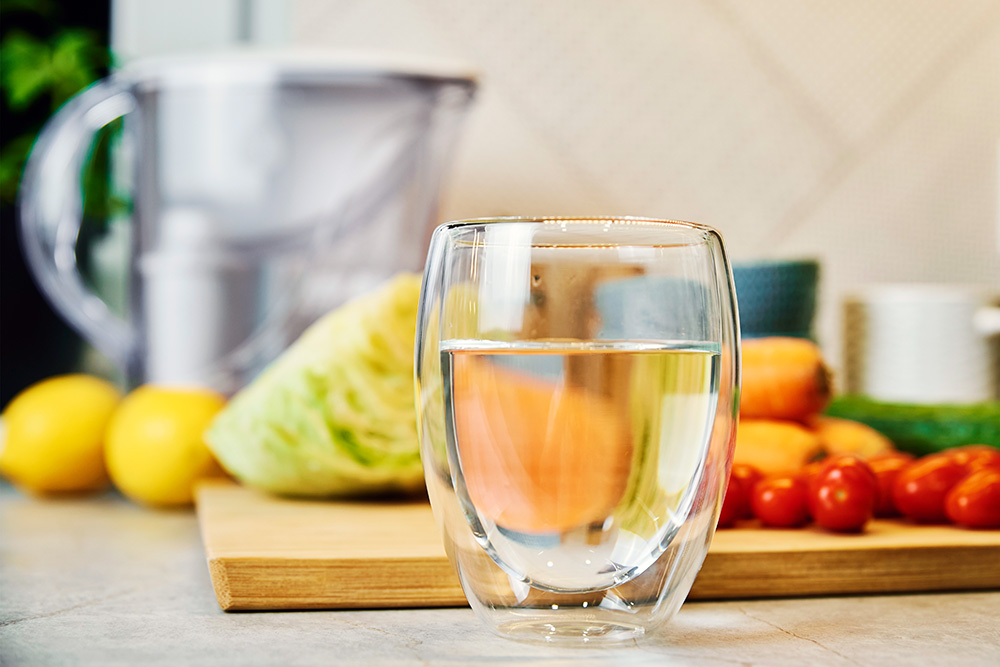Water is essential to keeping the body functioning normally. However, being properly hydrated is a delicate balancing act for many elder adults. This is especially true when your older loved one experiences incontinence issues. Below, we will discuss why hydration is important, even when dealing with incontinence.
Why Hydration Matters
Water is key for the majority of bodily functions, from basic organ function to staying healthy. Hydration is also vital to expelling waste effectively, especially through urination. Proper hydration keeps the bladder and kidneys functioning to help move urine out of the body safely. Not drinking enough water can cause kidney issues, UTIs, and bladder irritation; all of which can worsen incontinence.
Difficulties with Staying Hydrated and Incontinence
As you age, the body’s receptors weaken, including the ones that tell you that you are thirsty. As a result, many older adults won’t even realize that they are getting dehydrated. Some medications may also affect thirst, water flushing, and bladder control. Additionally, if your loved one is suffering from incontinence, they may try to drink less to manage the issue. However, dehydration can contribute to weakened bladder control.
Tips to Keep Older Adults Hydrated
A hydration routine is the best way to help your older loved one manage their water intake. Your loved one should aim to drink a bit of water every hour. According to the National Council on Aging, older adults should drink about one-third to one-half of their body weight in ounces, per day. If your loved one weighs about 180, they should be drinking 60-90 ounces of water per day. This is a lot more manageable when set hourly. If your loved one isn’t used to drinking a lot of water, start on the smaller end of the spectrum. Your loved one may want to track their water intake in a journal or on their phones.
Be sure to consult with your loved one’s doctor before making any major changes to their daily habits. They may also recommend changes to their ideal daily intake based on their specific medical history or medications.
Tips for Managing Incontinence
To help manage incontinence, it can be important to consult with a doctor. UTIs and kidney issues can quickly become dangerous for elder adults. For managing incontinence with an increased water intake, as mentioned above, help your loved one get into the routine of drinking more of their daily water during the day, and drinking less in the evening. This will help them empty their bladder without as many night-time interruptions.
Caregiver Tips for Hydration and Incontinence Management
Encouragement is important in helping your loved one deal with their hydration and incontinence issues. If your loved one is having frequent incontinence issues, you may need to invest in adult diapers, incontinence cream, and waterproof bedding for them. It can seem challenging or even counter-intuitive to encourage your loved one to drink more water while suffering from incontinence, but it can be very important. Don’t be afraid to consult with your loved one’s doctor. If you need more help managing your older loved one’s health and well-being, consider hiring in-home care. Safe Harbor Healthcare Services provides families with certified home health aides to assist with day-to-day care. This can include housekeeping, medication reminders, hygiene care, and more.
Safe Harbor Healthcare Services does not provide medical, healthcare, or financial advice via articles. This material has been prepared for informational purposes only. It is not intended to provide, and should not be relied on for advice.
Safe Harbor Healthcare Services has provided excellent home care on Staten Island since 1967. Our services help older and disabled individuals live safely and independently; while giving their families the peace of mind they need. For more information contact us or call (718)-979-6900.

